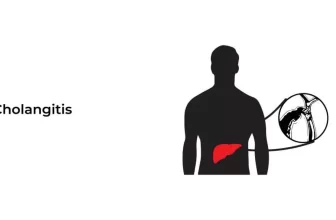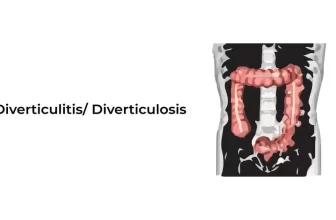Asthma is the most common ailment, especially in the United States, characterized by breathing problems caused by blocked airways and lungs. Inflammation of the airways occurs for various reasons, both recognized and unknown. The origin of asthma has yet to be identified, so there is no available specific treatment; however, doctors prescribe medicines and therapies to manage symptoms and cope with asthma. Certain types of asthma are brought on by internal factors, while others are related to external sources. It is very important to identify the types of asthma that will help determine the treatment you’ll need. According to the causes of Asthma, there are following two types;
- Extrinsic Asthma
- Intrinsic Asthma
Allergy asthma is another name for extrinsic asthma. Allergens are frequently the source and trigger. On the other hand, intrinsic asthma is non-allergic asthma triggered by internal sources. This article will discuss Intrinsic Asthma, its kinds, causes, triggers, treatment, and prevention.
Intrinsic Asthma
Unlike extrinsic asthma, intrinsic asthma is not caused by an allergy. Extrinsic Asthma gets triggered when any foreign allergen enters the body, and the body produces antigens against them which lead to clogged airways caused by causes mucous. Antibodies also inflame the lungs, which disturbs its muscle contraction and makes breathing difficult. Whereas Intrinsic Asthma is triggered by other medical conditions or an overactive immune system, which occurs when there is no allergen entering the body, but the immune system itself produces antibodies. It causes inflammation in the lungs and muscles that lead to clogged airways.
Causes of Intrinsic Asthma:
Although the exact cause of this illness is unknown, genetics and environmental factors are widely discussed as two possible causes. When a person’s genetic makeup meets environmental circumstances, they are more prone to asthma. Environmental factors primarily influence the development of this illness. During an asthma attack, the muscles in the airways tense, and the membranes lining the airways become inflamed. It produces mucus, which clogs the airways. When the airways get narrowed, an asthma attack ensures. Intrinsic asthma can be brought on by numerous factors such as overactive immune systems, certain medical disorders, environmental variables, and other factors.
Other medical problems can trigger intrinsic asthma. The following are a few of them:
- Infection of the sinuses
- Bronchitis (cold)
- Polyps in the nose
- Sinusitis
- Infections of the teeth or gums
- Infection of the throat
- Problems with the digestive system
- Failure of the kidneys
- Dysfunction of the heart
The triggers of extrinsic asthma are obvious. While intrinsic asthma does not have any stimuli that the patient can detect. Resultantly, people are unsure about the preventive measures or things to avoid. You must need a doctor’s advice to prevent an asthma attack for intrinsic asthma patients. However, you may assist your doctor by keeping an eye on the symptoms and the factors that trigger your asthma. Doctors will conduct diagnostic tests and rely on your information to determine the triggers and causes.
Symptoms
Asthma symptoms are often as follows:
- Breathing difficulties
- Increased heart rate.
- Tightness in the chest
- Coughing
- Whistling when breathing
- Sweating
- Unable to communicate
- Paler skin
- Tinted lips
- Fast and abrupt breathing
Diagnosis
The first step is to determine the form of asthma you have. If you have allergic asthma, you may need a different treatment than someone who has intrinsic asthma. A doctor will perform various tests to determine your asthma type and whether an allergic reaction activates your asthma. Trigger testing, skin prick tests, and peak flow tests are common tests needed to identify the type of asthma. These diagnostic tests expose the patient to a small amount of allergen to determine whether you have allergic asthma. In the case of intrinsic asthma, your doctors do not do any tests and instead rely on your medical history. Intrinsic asthma is more common in elderly patients.
Treatment
Asthma has no particular treatment, but there are specific ways to prevent severe symptoms and take medication to help you manage your condition. Inhalers allow you to breathe in medicine to relieve and prevent symptoms. If your asthma is severe, you may need to use medications or other treatments such as breathing therapies. Your doctor may develop a customized action plan based on your background, your asthma type, and specific triggers to guide you on how to live with your asthma. The doctor will also advise you on reducing exposure to certain stimuli, measuring progress, and controlling asthma attacks.
Moreover, the doctor may recommend medication such as inhalers, tablets, steroids, and injections. Surgery is required in a very rare condition. Biologics are a drug that is sometimes used to treat severe cases of intrinsic asthma. These drugs help reduce inflammation in the airways by targeting specific proteins or cells that produce inflammation.
References:
- https://www.verywellhealth.com/intrinsic-asthma-5201485 retrieved on June 02, 2022.
- https://www.healthline.com/health/intrinsic-asthma retrieved on June 02, 2022.
- https://www.medicalnewstoday.com/articles/325536 retrieved on June 02, 2022.
- https://www.nhs.uk/conditions/asthma/treatment/ retrieved on June 02, 2022.
- https://health.clevelandclinic.org/asthma-action-plan/?_ga=2.39515491.1191929612.1654623047-1199124972.1653727656&_gl=1*wuhgcw*_ga*MTE5OTEyNDk3Mi4xNjUzNzI3NjU2*_ga_HWJ092SPKP*MTY1NDYyMzA0OC42LjAuMTY1NDYyMzA1MS4w retrieved on June 02, 2022.







